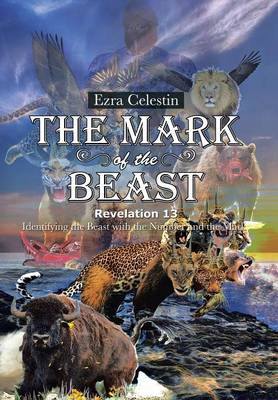Worship
is mentioned in connection with the first beast of Revelation 13, and
many expositors of the Word point to the wounded head and say, “Aha!
It receives worship and therefore this worship must be in opposition
to the worship of God.” What they have failed to point out is that
worship goes on with all seven heads, and all seven heads blaspheme the name of God. The head, though part of the beast, is not the
beast. Religion plays a great role in influencing nations; however,
religion is not the government of the nation. It is the government of
the nation and the people who determine what type of beast the nation
is assumed to be.
The
Word says, “And they worshiped the dragon which gave power unto the
beast: and they worshiped the beast, saying, Who is like unto the
beast? Who is able to make war with him?” (Revelation 13:4,
revision 1960).
It
is very easy, especially for devout Christians, to look at this text
and ascribe it to the narrow spectrum of a religious love and
devotion in contrast to God. However, the text is referencing the
beast with the people of the nation, saying, “Who is like unto the
beast?” Notice how the text says “and they worshiped” the
dragon and the beast.
What
is worship?
Worship is a feeling or expression of reverence, love,
and devotion given to a deity. There is another word that has the
same meaning and force as the word worship
but is given to one’s country. That word is patriotism.
Patriotism is defined as having or expressing love and devotion to
and vigorous support for one’s country. Therefore, patriotism and
faith are equal forces that bring out love and devotion in human
beings. John saw the people who make up the nations of the composite
beast of Revelation 13 as having an intense love and devotion to and
vigorously supporting their countries. They are very proud of their
countries and their military might. It is an honor for them to lay
down their lives for their countries.
It
is not difficult to conceive how the European people love their
countries, and the military power of Europe collectively is unmatched
by any nation. Who is able to make war with them and win? This is the
world in which we live. This is a prophetic time; prophecy is
unfolding, if only it could be seen from the right prospective. Do
not confuse patriotism with nationalism; when John used the word
worship,
he was not referring to nationalism. Nationalists believe that their
interests, cultures, social values, and religions are superior to all
others. They disregard and disrespect the values, culture, and
religion of any country that is different from their own. They have a
superiority complex about them. This complex is a psychological
defense mechanism in which feelings of superiority counter or conceal
feelings of inferiority1.
What
John is referring to is how the Europeans have pride in their
countries and pride in the accomplishments and achievements of their
countries. They do not think they are superior to people in other
countries. They love their countries passionately and will give their
lives for their countries. They will give up their freedom if it
means the protection of their countries. That is the kind of worship
John is referring to when he says they worship the beast. It is the
dragon who gave power to the beast. Therefore to be patriotic to the
country is to be patriotic to the dragon, which is the devil and
Satan (Revelation 20:2, Rev. 1960). And they worshiped the dragon
which gave power unto the beast: and they worshiped the beast,
saying, Who is like unto the beast? Who is able to make war with
him?” (Revelation 13:4, revision 1960).
1The
American Heritage® Dictionary. (2000). superiority complex.
Retrieved from TheFreeDictionary:
http://www.thefreedictionary.com/superiority+complex

No comments:
Post a Comment